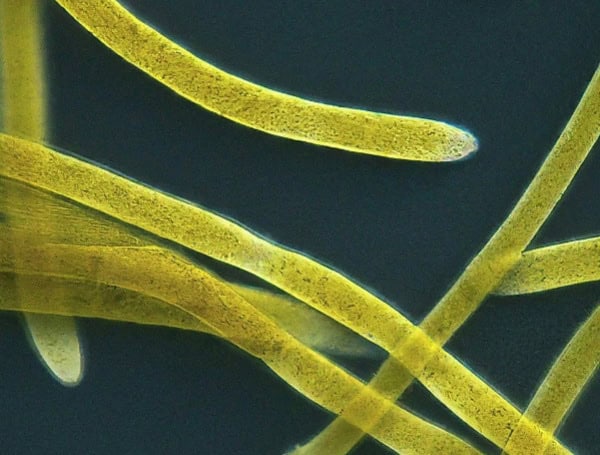POLK COUNTY, Fla. – The Florida Department of Health in Polk County (DOH-Polk) issued a public health caution on Wednesday, May 28, 2025, alerting residents and visitors to the presence of blue-green algae in Lake Crago, specifically observed near the boat ramp.
Water samples from the lake are currently undergoing testing to determine the presence and type of toxins, which certain blue-green algae can produce. Health officials emphasize that even before toxin confirmation, it is crucial to exercise caution as environmental conditions in the water can change rapidly.
READ: Haines City High School Teacher Arrested On Meth Charges At Winter Haven Park
Residents and visitors are advised to adhere to the following precautions:
- Avoid Water Contact: Do not drink, swim, wade, or use personal watercraft in areas where visible algae blooms are present.
- Hygiene: If contact with algae or discolored or foul-smelling water occurs, wash skin and clothing thoroughly with soap and water.
- Protect Animals: Keep pets and livestock away from the affected water. Waters with algae blooms are not safe for animals, and alternative water sources should be provided.
- Food Safety: Do not cook or clean dishes with water contaminated by algae blooms. Boiling the water will not eliminate potential toxins.
- Fish Consumption: Eating fillets from healthy fish caught in freshwater lakes experiencing blooms is generally considered safe. However, fillets should be rinsed with tap or bottled water, the guts discarded, and the fish cooked thoroughly.
- Shellfish Warning: Do not eat shellfish harvested from waters experiencing algae blooms.
Understanding Blue-Green Algae Blue-green algae, or cyanobacteria, are microorganisms common in Florida’s freshwater environments. A “bloom” occurs with their rapid growth, leading to discolored water, floating mats, and often unpleasant odors. Blooms can manifest as scum, foam, or paint-like streaks on the water’s surface and can appear in various colors. Factors contributing to blooms include sunny days, warm water temperatures, still water, and excess nutrients. While more common in summer and fall, blooms can occur year-round, and algae may be present even if not visibly forming a bloom.
READ: Joyride Turns Deadly On Texas Lake: Venezuelan Woman Faces Manslaughter Over Kayak Collision
Potential Harm Some blue-green algae can produce toxins harmful to humans, pets, and aquatic ecosystems. Sensitive individuals, such as children, the elderly, and those with compromised immune systems, may be at risk even at low toxin concentrations and should avoid any exposure.
Stay Informed and Report Concerns The Florida Department of Environmental Protection (DEP) and its partners are responsible for collecting and analyzing algae samples. Toxin results can be viewed on the “Protecting Florida Together” website (ProtectingFloridaTogether.gov) or DEP’s Algal Bloom Dashboard.
- To Report Algae Blooms: Contact DEP online or at 1-855-305-3903.
- For Human Health Symptoms: If you experience symptoms after exposure to an algae bloom, call the Florida Poison Information Center at 1-800-222-1222.
- For Animal Health Concerns: Contact your veterinarian if you suspect your pet has become ill after contact with contaminated water.
- To Report Fish Kills: Notify the Florida Fish and Wildlife Conservation Commission (FWC) online or at 1-800-636-0511.
DOH-Polk will continue to monitor the situation and provide updates as more information becomes available.
Please make a small donation to the Tampa Free Press to help sustain independent journalism. Your contribution enables us to continue delivering high-quality, local, and national news coverage.
Connect with us: Follow the Tampa Free Press on Facebook and Twitter for breaking news and updates.
Sign up: Subscribe to our free newsletter for a curated selection of top stories delivered straight to your inbox.

